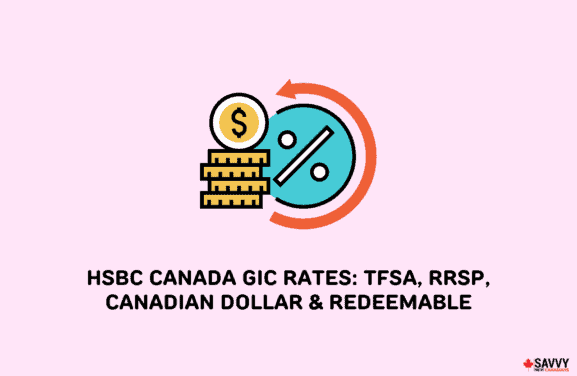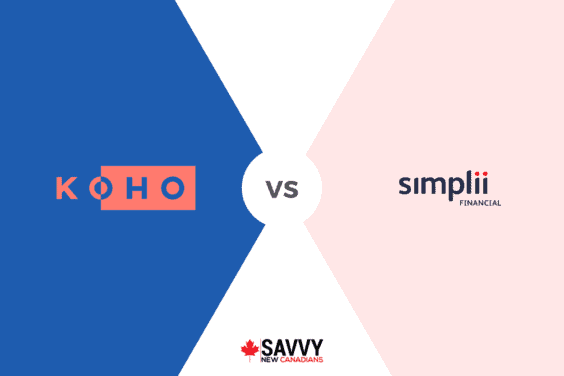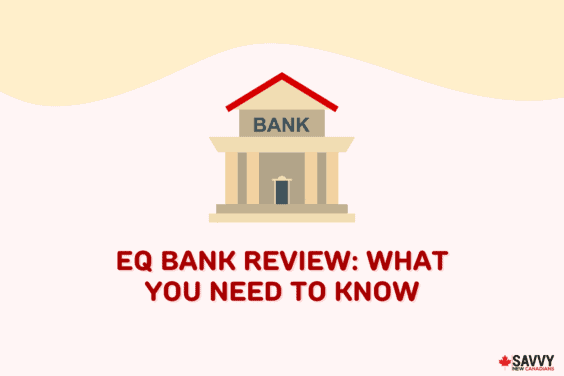Closing your bank account in Canada may appear to be a daunting task, but it is not.
If your bank no longer meets your needs, or you are divorcing it due to exorbitant fees and are going for a no-fee online bank, you can simply close your account.
You can visit a branch, send them a secure e-mail via Online Banking, call their hotline or contact their support to let them know you want to close your account.
Key Takeaways
- To close a bank account in Canada, visit a branch, send them a secure e-mail via Online Banking, call their hotline or contact their support.
- Before you close your bank account, it is ideal to find a new bank offering the products and services you need, update pre-authorized debits and direct deposits, and transfer your balance to your new account.
- You may need to pay fees for closing and transferring your account, NSF fees, inactivity fees, etc.
How To Close Your Bank Account
Depending on the bank, you can easily close your account online by visiting a branch or via a phone call.
How To Close a TD Bank Account
As per TD, you can close your account by:
- Visiting a local branch
- Mailing in a written request
If your account has a zero balance, you can also close your account by calling 1-866-222-3456.
TD Fees
- TD chequing and savings accounts become dormant after they have been inactive for 1 year
- The NSF fee is $48
- A $15 fee applies if you close your account and ask TD to transfer the balance to another financial institution. You don’t pay a fee if you transfer funds yourself
How To Close a Scotiabank Bank Account
You will need to visit a Scotiabank branch if you want to close your bank accounts. There is no option to call or do it online.
Scotiabank Fees
- Closing your account within 90 days of opening costs $20
- A $20 fee applies if Scotiabank transfers your account to another financial institution
- The NSF fee is $48
- An account is dormant after 12 months of inactivity
Related: The Best Scotiabank Chequing Accounts.
How To Close a CIBC Bank Account
A CIBC bank account can be closed by:
- Visiting a local branch
- Phone (1-800-465-2422)
CIBC Fees
- Closing your account within 90 days of opening it will cost you $20 per account
- A $19.50 fee applies per account if you ask CIBC to transfer your account to another bank
- The NSF fee is $45
- Your CIBC personal accounts are considered dormant if you have not initiated any transactions within a 24-month period
How To Close a Tangerine Bank Account
Call Tangerine customer support at 1-888-826-4374 for help in closing your account. They are available 24/7.
If you are only closing one of your accounts, you can do so via Online Banking.
Tangerine Fees
- The NSF fee is $45
- $10 1-year inactivity fee
Related reading
How To Close an RBC Bank Account
RBC personal bank accounts can be closed in-branch, by phone (1-800-769-2511) or by sending a secure mail via Online Banking.
RBC Fees
- Closing an account within 15 days of opening is free
- A $20 fee applies if you close an account older than 15 days. This fee is waived if you close your account in person at a branch
- The NSF fee is $45
- An account is considered inactive after 2 years of no transactions

How To Close a BMO Bank Account
To close a Bank of Montreal bank account, you need to visit a branch.
BMO Fees
- A $20 fee applies to accounts closed within 90 days of opening
- A $20 fee applies to account balances transferred to another bank
- The NSF fee is $48
Related: Best BMO Chequing Accounts.
How To Close a Simplii Financial Bank Account
Call them at 1-888-723-8881 to close your account.
Simplii Fees
- The NSF fee is $45
- There is a $19.50 fee to transfer your account balance to another financial institution
- Your account becomes dormant after 2 years. A $20 fee applies per year
Related: Simplii Financial Online Bank review.
How To Close a KOHO Account
To close your KOHO account, contact their support via the app and let them know you would like to close your account.
KOHO Fees
- There’s no fee to close your KOHO account
- Accounts that have been open for longer than 13 months and inactive for 6 months are charged a $1 fee every 6 months. You can waive the inactivity fee by adding funds or making a purchase at least once every 6 months.
- There’s no NSF fee
Things To Do Before Closing a Bank Account
Below are some things you should consider before closing your chequing and savings accounts.
1. Find a new bank
Unless you go off the grid, you will need another bank to manage your deposits and bill payments.
Do your research and compare what is available out there. Make sure your new bank offers the financial products and services you need.
Related reading:
- Best Bank Accounts for Newcomers
- Guide to Credit Unions in Canada
- Best Savings Accounts for High-Interest Rates
Nothing sucks more than closing your bank account, opening a new one elsewhere and getting hammered with Non-Sufficient Funds (NSF) fees when automated payments start bouncing.
Closely look at your transaction history over the year and set up pre-authorized debits (PADs) on your new account.
Some of the popular bill payments that should be in place include credit card payments, utility bills, loans, phone, insurance, and mortgage payments.
Ensure your employer has your new account details to facilitate the direct deposit of your salary.
If you are contributing to an investment account (e.g. TFSA, RRSP or RESP) via an automated savings plan, make sure to update those as well.
If you are expecting a payment from the government (e.g. income tax refund or pension), update your bank details online via CRA My Account.
Allow a few weeks for these changes to take effect.
3. Withdraw funds from your old account
Transfer your cash balance to your new account using online banking or a cheque.
Once you have completed all these steps, it is time to close your account for good.

Does Closing a Bank Account Affect Your Credit Score?
Closing your savings and chequing bank accounts does not impact your credit score as long as you are not owing money that ends up in collections.
If you also decide to close your credit card account, your score may be negatively affected.
This is so because the length of your credit history factors into credit score calculation by credit bureaus. Your credit card usage (payments and balances) is also reported on your credit report.
The older a credit card is, the higher the impact on your credit score. Read more about how your credit score is calculated.
Credit cards are separate from your chequing and savings accounts, so you can close one and leave the other open. If you want to close your credit card account, all it takes is a phone call.
Wondering what your credit score is? Check it for free here.
How About Other Bank Accounts?
You can also close your investment accounts and withdraw the funds or transfer your balance to another bank for a fee.
Transferring your RRSP or TFSA account to another financial institution will cost you between $50 and $135 per account, depending on the bank.



